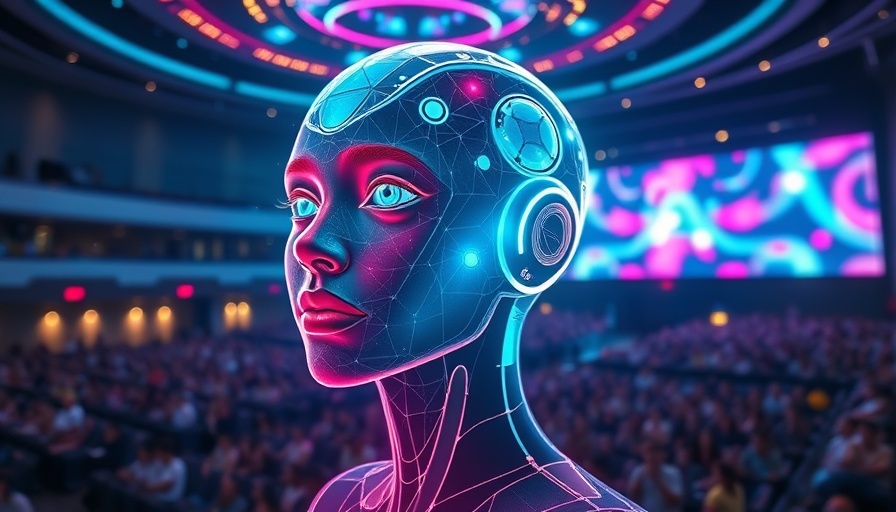
The Future of Software Engineering in a World of AI
The emergence of artificial intelligence is prompting a profound reevaluation of various professions, particularly in the realm of software engineering. As advancements in AI technologies continue to accelerate, the question arises: have we reached the stage where coding as a profession is on the brink of obsolescence? Former Google VP of Engineering shares insights that challenge the prevailing narrative concerning the fate of software engineers amidst this technological upheaval.
In 'Did AI Just Kill Software Devs?', the discussion dives into the impact of AI technology on the future of software engineering careers, prompting us to analyze its key insights and implications.
AI Technology: A Catalyst for Change
Recent discussions around the dramatic rise in the valuation of AI tools used for coding indicate that many believe these innovations represent the future of software development. High valuations, such as the staggering $3 billion for platforms like Cursor, raise eyebrows and lead to concerns about the future of coding jobs. However, a close examination reveals a different perspective: these valuations are not a death knell for software engineering, but a signal of the transformative power of AI in the field.
The Role of Software Engineers in an AI-Driven Landscape
The reality is that rather than replacing software engineers, AI tools will augment their capabilities. As discussed in the recent dialog surrounding AI tools and their implications on software engineering, it is evident that AI acts as a complex enabler, streamlining workflows and enhancing productivity. By doing so, it demands a new skill set from engineers rather than rendering their existing skills obsolete.
Learning Adaptability: The New Skill for Future Engineers
Experts like Jordan and Joe, who have spent extensive time in the tech industry, argue that the introduction of AI will change the nature of work rather than eliminate it. Future software engineers must now prioritize adaptability and become proficient in using AI tools to remain competitive in a rapidly changing job market. This evolution echoes historical shifts within industries—similar to accountants who transitioned their roles through the incorporation of spreadsheets, engineering roles will adapt to integrate AI applications effectively.
The AI Tools Landscape: Opportunities for Engineers
As companies such as Google, Microsoft, and various start-ups innovate and invest in AI technologies, a ripe terrain for opportunities emerges for software engineers. The demand for those capable of harnessing AI’s potential will soar as businesses seek efficiencies and improvements to remain competitive. Ironically, rather than a reduction in demand for software engineers, we may witness an upsurge in job opportunities tailored to those who can effectively employ AI tools in their programming.
Future Predictions: A Thriving Market for Hybrid Skills
In light of current trends, we can predict a thriving market for software engineers equipped with dual competencies in coding and AI. As AI technology evolves, there will be a greater emphasis on roles that require an understanding of both software engineering principles and AI methodologies. This hybridity will equip engineers with the tools necessary to innovate within their fields and tackle increasingly complex problems, effectively ensuring their relevance in the job market moving forward.
Counterarguments: Do AI Tools Really Replace Jobs?
Critics may argue that the rampant rise of AI tools erodes job security for software engineers. However, the consensus among industry experts reveals a nuanced picture. Instead of displacing workers, these tools will shift job functions toward roles demanding strategic thought and higher problem-solving skills. Hence, entry-level jobs may evolve, while senior positions could become significantly more impactful, leading to a net gain in total job sophistication rather than a loss in total jobs.
Decisions You Can Make With This Information
For students and current professionals pondering their future in software engineering, this dynamic landscape conveys a powerful message: adapt and thrive. Understanding the evolving role of AI and integrating this knowledge into your skill set can propel you forward in your career. Courses and certifications in AI tools and machine learning could greatly enhance your employability and make you an asset in a future where coding and AI coexist.
Final Thoughts: Why Embrace Change?
In conclusion, the career prospects for software engineers are not bleak in the face of AI advancements. Rather, they are transforming, presenting a myriad of opportunities for those willing to adapt. As AI technology continues to disrupt and redefine software development, engineers who harness the power of these tools can expect to carve out exciting and diverse career paths.
This ongoing evolution invites further exploration—both of the potentials AI holds for the tech industry and of how aspiring software engineers can best position themselves for success in this new frontier.
 Add Row
Add Row  Add
Add 




 Add Row
Add Row  Add
Add 

Write A Comment